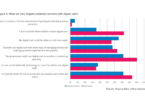The Central Bank of Russia’s (CBRs) digital ruble pilot was delayed from its planned start date of April 1, pending the passage of legislation at the State Duma. The delayed version was expected to pass by now, but according to the Russian state news agency TASS, the legal go ahead for the central bank digital currency (CBDC) has been pushed back to around the end of July. The pilot includes the clients of 13 banks.
Non residents have unrestricted digital ruble access
The latest iteration of the legislation has several changes, particularly relating to non residents. Non residents have the right to carry out digital ruble transactions without restrictions. This contrasts with many other central banks that aim to limit foreign usage in the early stages. However, for Russia, a key driver is to enable an alternative payment system in the face of sanctions over its invasion of Ukraine.
The central bank is the operator of the platform and can authorize both domestic and foreign banks to participate. Non residents can access the digital ruble via a foreign bank, a domestic bank, and via the central bank directly where the law allows it.
In January, there were reports that the central bank was starting to experiment with cross border CBDC including through bilateral linkages as well as a shared platform. While there has been some talk about potential linkages with Iran, India and China, nothing has been formally announced. Instead, India announced cross border work with the UAE, which is also not unfriendly with Russia. And the UAE and China are both involved in the MBridge shared CBDC platform.
Besides using CBDC, Russia has also drafted a law to enable it to use digital assets such as tokenized precious metals for cross border payments.
Other legal amendments
One curious amendment in the CBDC legislation is the need to encrypt data relating to Federal Security Service personnel and others under security protection. It’s not surprising to want to safeguard this sort of information, but it leaves the impression that everyone else’s payment data would not be encrypted. It also implies that the central bank will store the entire payment records, in contrast with some Western CBDC designs designed to avoid government surveillance.
Another legal change relates to enforcement actions. If someone has a legal debt, sometimes there’s enforcement against their bank account. But in Russia, this sort of claim can only be made above some threshold, leaving the person with a subsistence level of income. The latest legislation now includes a similar ability to claim against the digital ruble wallet. However, it has no subsistence limit, which is likely to be changed in the next iteration.
Given the slow progress of the legislation, the central bank and the CBDC pilot participants are likely to have to wait until August to start the pilots.






